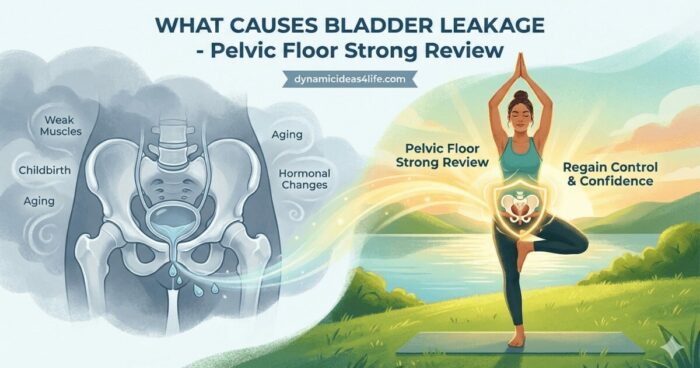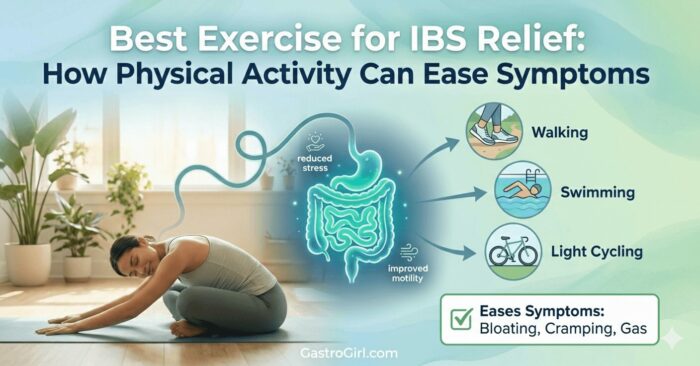Are you constantly clearing your throat, battling a mysterious chronic cough, or struggling with unexplained voice changes? If you’ve been grappling with these perplexing symptoms, you might be dealing with more than just a stubborn cold or allergies. What you might not be aware of as these are the symptoms of Laryngopharyngeal Reflux (LPR).
For sufferers of Acid Reflux and GERD this is a condition that often masquerade as everyday nuisances, leaving you bewildered and in search of answers.
In this article, we embark on a journey to unveil the enigmatic signs of LPR that frequently go unnoticed, shedding light on a condition that affects millions but often remains hidden in plain sight.
Understanding Laryngopharyngeal Reflux (LPR): What You Need to Know
LPR is a condition characterized by the backflow of stomach acid into the throat and larynx. This occurs when the lower esophageal sphincter, a muscle that normally prevents acid from flowing back up into the esophagus, becomes weak or relaxes inappropriately.
The acid irritates the delicate tissues in the throat and larynx, leading to inflammation and discomfort.
LPR differs from GERD in that it primarily affects the upper respiratory tract, while GERD primarily affects the esophagus. While both conditions involve the backflow of stomach acid, LPR often presents with different symptoms than GERD.
For example, individuals with LPR may experience hoarseness, chronic cough, or excessive throat clearing, while those with GERD typically experience heartburn and regurgitation.
The causes of LPR are similar to those of GERD and include factors such as obesity, smoking, certain medications, and certain foods and beverages.
Additionally, certain risk factors can increase an individual’s likelihood of developing LPR, such as pregnancy, hiatal hernia, and connective tissue disorders.
The Silent Culprit: Unmasking the Hidden Symptoms of LPR
LPR is often referred to as the “silent reflux” because it can occur without the typical symptoms of acid reflux, such as heartburn.
This can make it difficult to diagnose, as individuals may not realize they have a problem until the condition has progressed.
Additionally, the symptoms of LPR can be subtle and easily attributed to other causes, further delaying diagnosis and treatment.
One of the reasons LPR is considered silent is because it often does not cause the typical burning sensation associated with acid reflux.
Instead, individuals may experience a range of symptoms such as a sore throat, hoarseness, or a chronic cough. These symptoms can be intermittent and may worsen after eating or lying down.
Sore Throat and Hoarseness: Common Signs of Laryngopharyngeal Reflux
LPR can cause a sore throat and hoarseness due to the irritation and inflammation of the throat and larynx. The acid from the stomach irritates the delicate tissues in these areas, leading to discomfort and changes in voice quality.
It is important to recognize these symptoms as potential indicators of LPR because they can often be mistaken for other conditions.
For example, a sore throat and hoarseness are common symptoms of a cold or flu. However, if these symptoms persist for an extended period of time or are accompanied by other LPR symptoms, it is important to consider LPR as a potential cause.
Chronic Cough: A Persistent Symptom of LPR You Shouldn’t Ignore
A chronic cough is another common symptom of LPR. The acid from the stomach irritates the throat and larynx, triggering a cough reflex. This cough is often dry and persistent, and may worsen after eating or lying down.
It is important to recognize that LPR-related cough differs from other types of cough. While a cough caused by a cold or flu may be accompanied by other respiratory symptoms such as congestion or phlegm production, an LPR-related cough is often isolated and does not improve with typical cough remedies.
If you have a chronic cough that does not respond to treatment, it is important to consider LPR as a potential cause.
The Uncomfortable Truth: LPR and the Battle with Excessive Throat Clearing
Excessive throat clearing is a common symptom of LPR. The acid from the stomach irritates the throat, causing individuals to feel the need to clear their throat frequently.
This can be uncomfortable and disruptive to daily life.
Excessive throat clearing can have a significant impact on an individual’s quality of life.
It can interfere with speaking, eating, and sleeping, and can cause embarrassment and frustration. It is important to address this symptom and seek appropriate treatment to improve quality of life.
The Bitter Taste of LPR: Unveiling the Link between Acid Reflux and Laryngopharyngeal Reflux Symptoms
Acid reflux can cause laryngopharyngeal symptoms by irritating the delicate tissues in the throat and larynx. When stomach acid flows back into the throat, it can leave a bitter taste in the mouth. This taste is often described as sour or metallic and can be persistent.
Addressing acid reflux is important in managing LPR symptoms. By reducing the amount of acid that flows back into the throat, individuals can alleviate symptoms such as a bitter taste and improve their overall comfort.
Earaches and Sinus Issues: Surprising Indicators of Laryngopharyngeal Reflux
LPR can cause earaches and sinus issues due to the close proximity of these structures to the throat and larynx.
When stomach acid flows back into the throat, it can also reach the Eustachian tubes and sinuses, leading to inflammation and discomfort.
It is important to consider LPR as a potential cause for earaches and sinus issues, especially if these symptoms are persistent and do not respond to typical treatments. By addressing the underlying LPR, individuals can alleviate these symptoms and improve their overall comfort.
LPR and Dental Health: How Acid Reflux Can Impact Your Teeth and Gums
Acid reflux can damage teeth and gums due to the corrosive nature of stomach acid. When acid flows back into the throat, it can also reach the mouth, where it can erode tooth enamel and irritate the gums.
Dental care is an important aspect of managing LPR. By practicing good oral hygiene and seeking regular dental check-ups, individuals can minimize the impact of acid reflux on their teeth and gums.
The Hidden Impact: LPR’s Role in Sleep Disorders and Breathing Difficulties
LPR can contribute to sleep disorders and breathing difficulties due to the irritation and inflammation of the throat and larynx. When individuals lie down to sleep, the acid from the stomach can flow back into the throat more easily, exacerbating symptoms.
Addressing LPR is important in improving sleep quality and reducing breathing difficulties. By reducing the amount of acid that flows back into the throat, individuals can alleviate symptoms such as snoring, sleep apnea, and difficulty breathing during sleep.
Seeking Relief: Effective Treatment Options for Laryngopharyngeal Reflux
There are several treatment options available for LPR, including lifestyle changes, medications, and medical procedures.
These lifestyle changes may include avoiding trigger foods and beverages, losing weight if necessary, quitting smoking, and elevating the head of the bed while sleeping.
Medications such as proton pump inhibitors (PPIs) or H2 blockers may be prescribed to reduce stomach acid production.
In some cases, surgical procedures may be recommended to strengthen the lower esophageal sphincter or repair any structural abnormalities that may be contributing to LPR.
For anyone with LPR, It is important to work with a healthcare professional to determine the most appropriate treatment plan for your individual needs.
They can help you navigate the various options and develop a personalized approach to managing your LPR symptoms.
In Conclusion
Laryngopharyngeal Reflux (LPR) is a condition that occurs when stomach acid flows back into the throat and larynx, causing irritation and inflammation.
It is important to understand LPR and its symptoms because it can often go undiagnosed due to its silent nature. By recognizing the symptoms of LPR, individuals can seek appropriate treatment and improve their quality of life.
LPR can present with a range of symptoms, including sore throat, hoarseness, chronic cough, excessive throat clearing, bitter taste, earaches, sinus issues, dental problems, sleep disorders, and breathing difficulties.
It is important to consider LPR as a potential cause for these symptoms, especially if they are persistent and do not respond to typical treatments.
There are several treatment options available for LPR, including lifestyle changes, medications, and medical procedures.
It is important to work with a healthcare professional to determine the most appropriate treatment plan for your individual needs.
By addressing LPR and managing its symptoms, individuals can improve their overall comfort and quality of life.
If you are experiencing any of the symptoms mentioned in this article, it is important to seek medical advice for proper diagnosis and treatment.






Anxiety and Depression BiOptimizers blood pressure supplements blood sugar control blood sugar support supplements cognitive function digital products Dr Sam Robbins Exercise Gut Health Healthy Living heart health HFL how to lower blood sugar levels How To Lower Cholesterol insulin resistance joint health supplement Keto keto dieting Keto Diet Weight Loss leaky gut supplements leptin resistance list Magnesium deficiency Matt Gallant mental health multivitamins Nootopia Nootropics nutrient supplements Probiotics Probiotic Supplements proteolytic enzymes reverse type 2 diabetes stress and anxiety stress relief Supplements vitabalance vitapost Wade Lightheart weight loss articles weight loss diet plans weight loss product reviews weight loss supplements weight loss tea


